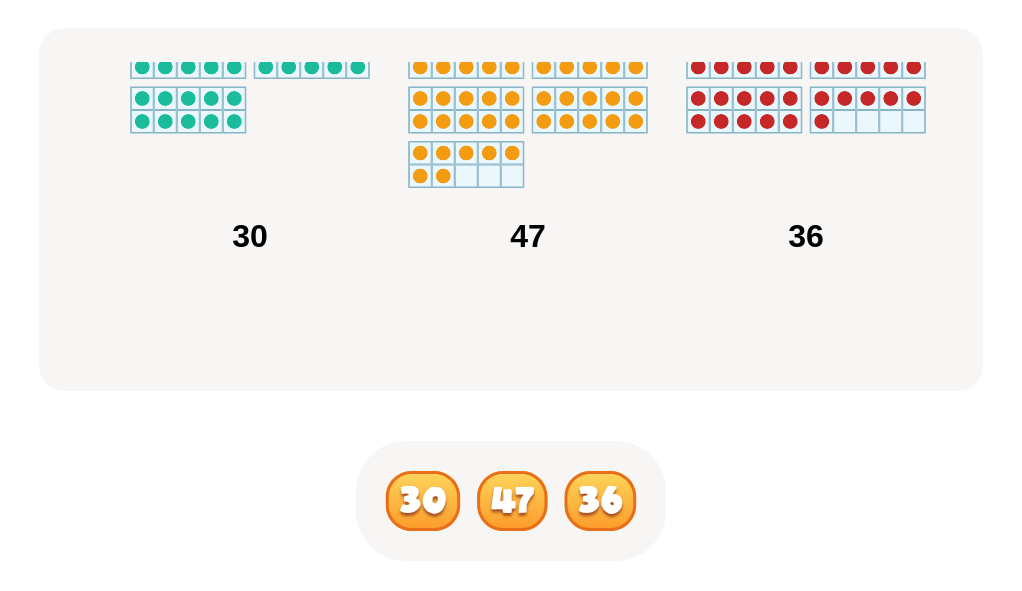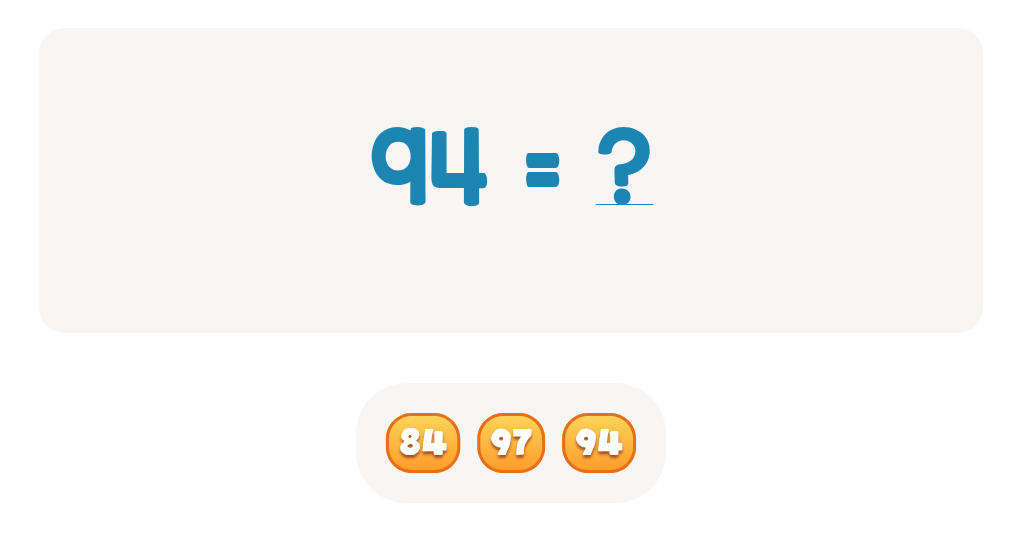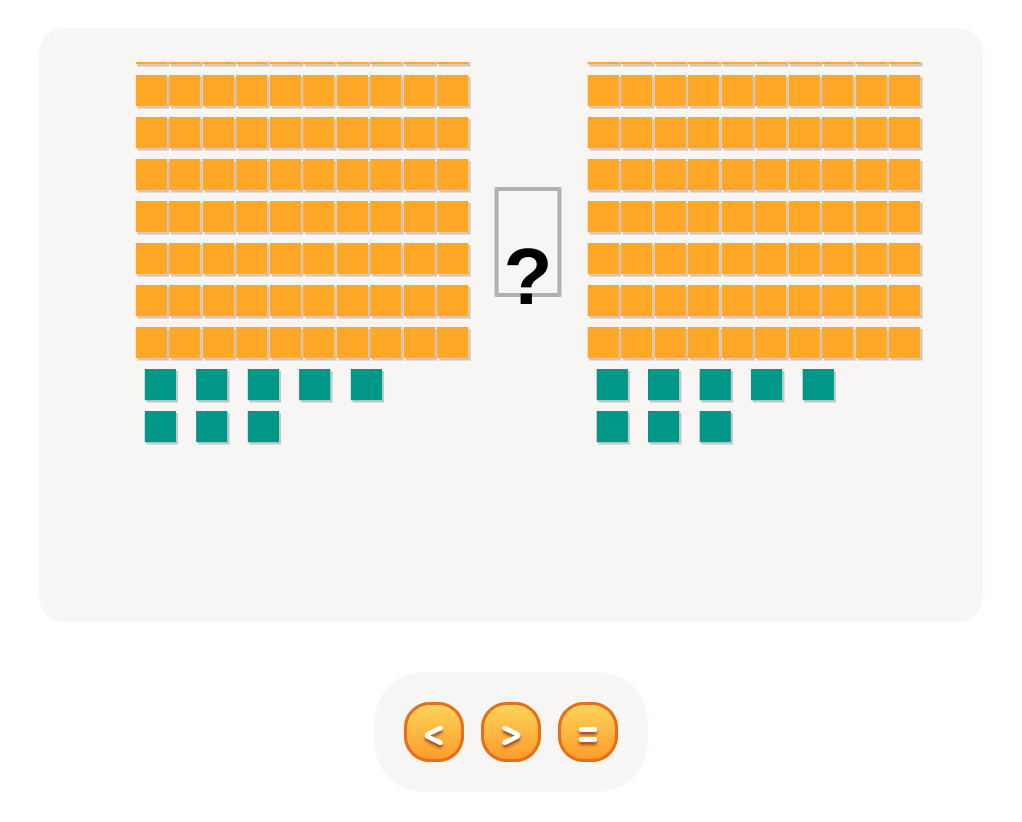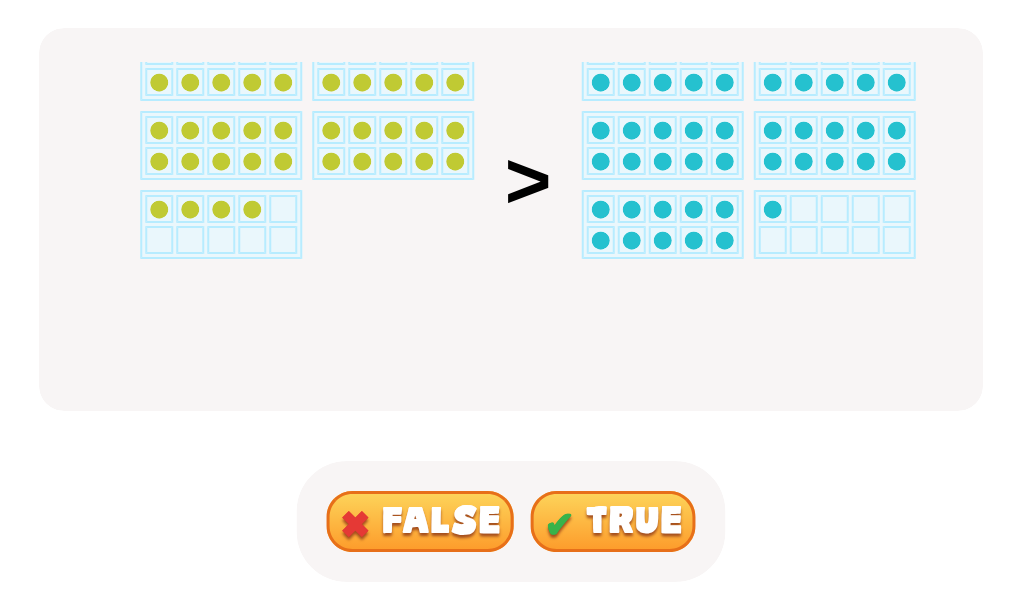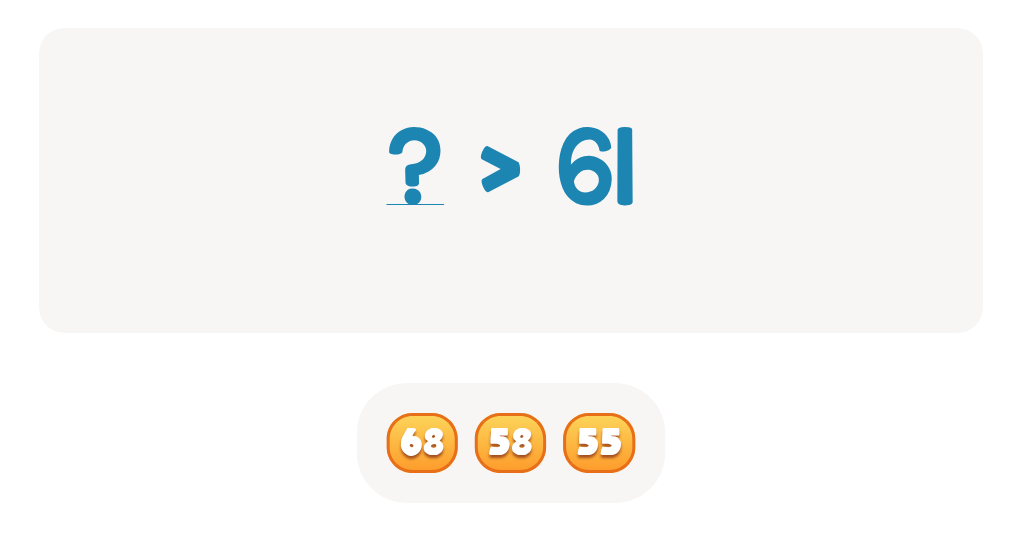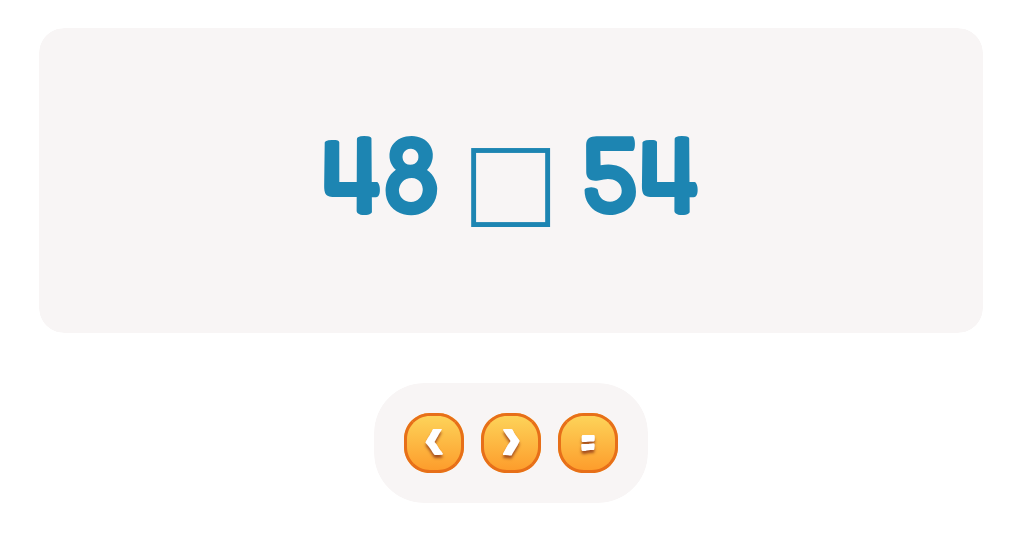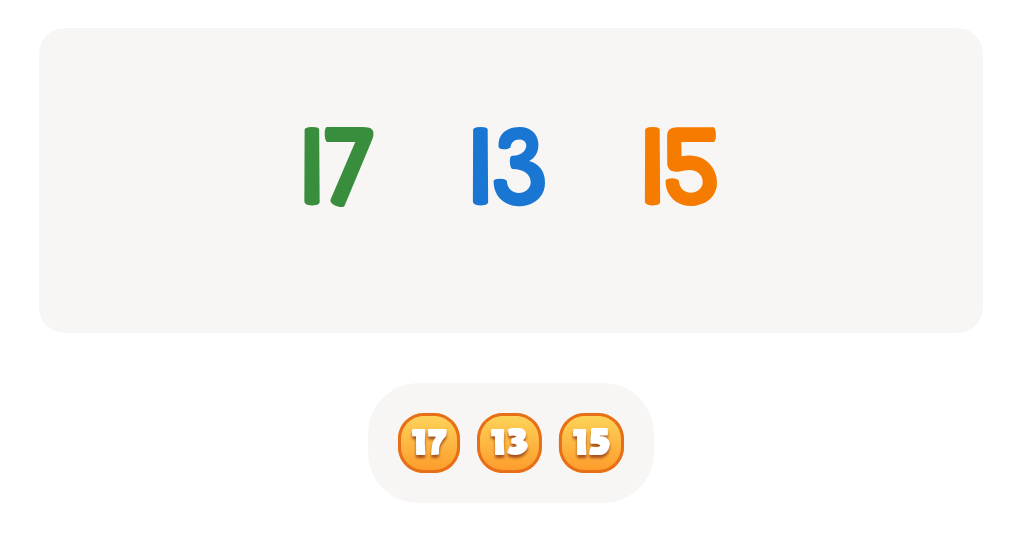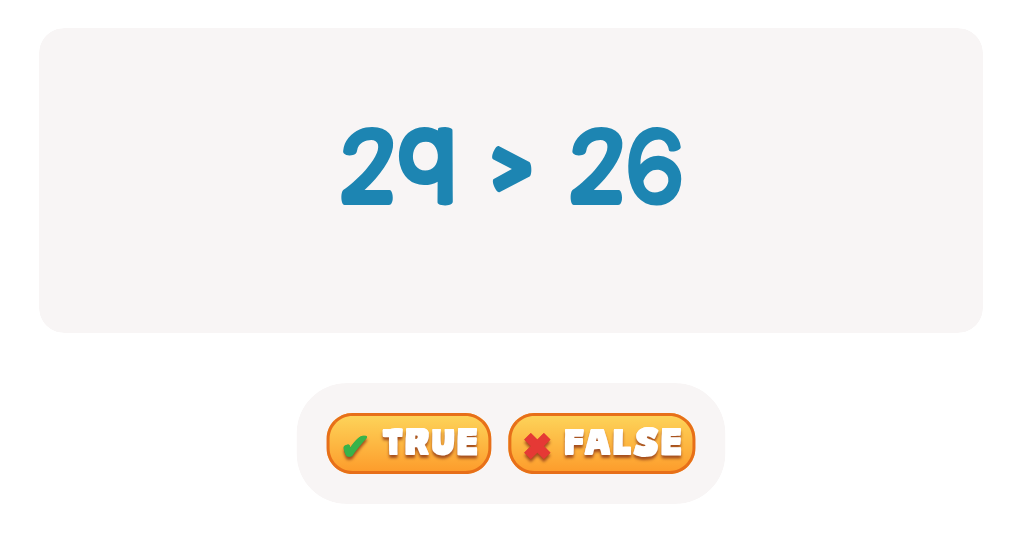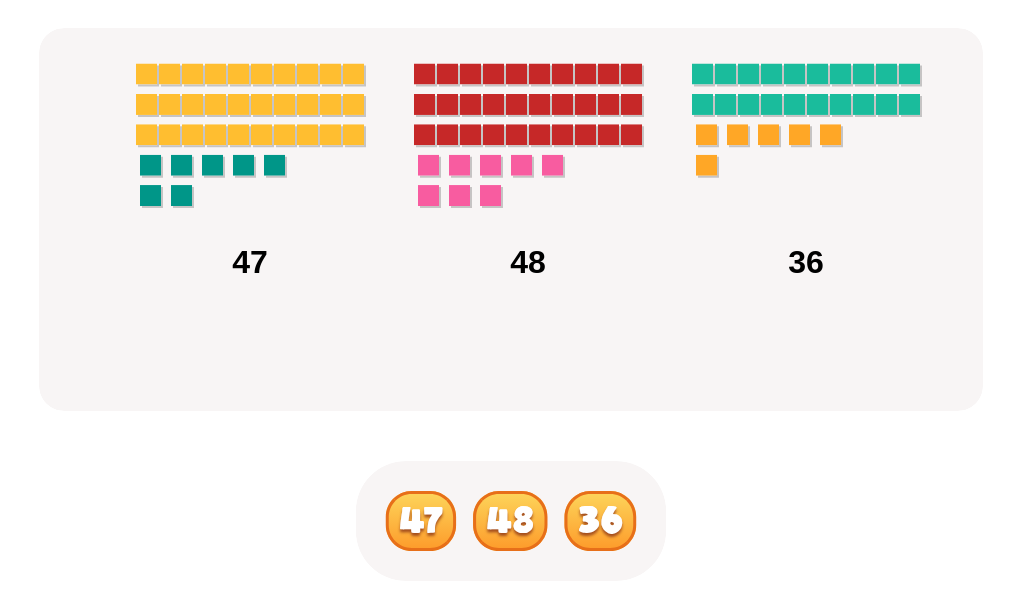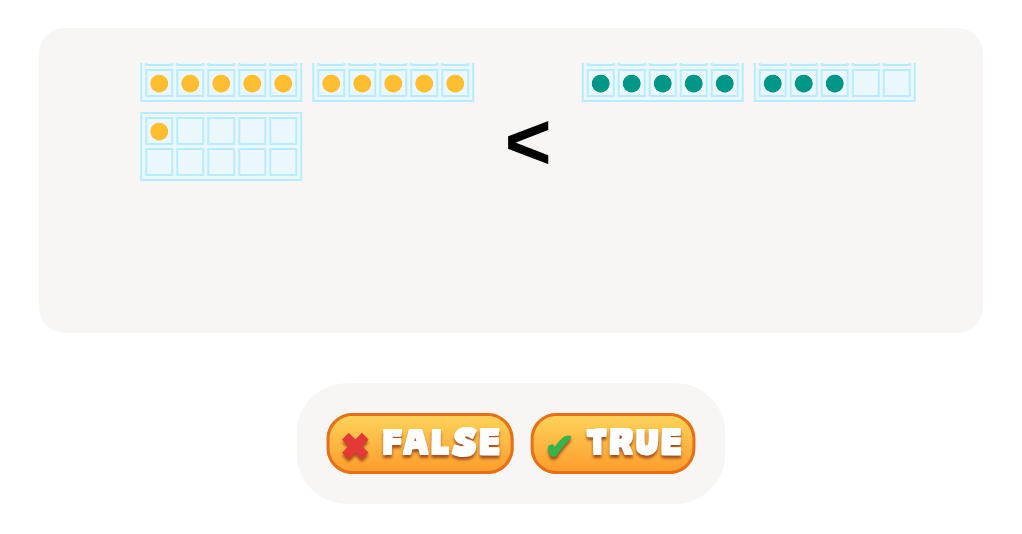Problem-Solving Skills Comparing Numbers Worksheets for Ages 6-9
6 filtered results
-
From - To
Welcome to our "Problem-Solving Skills Comparing Numbers Worksheets" for children aged 6-9! These engaging worksheets are designed to enhance young learners' mathematical abilities through fun and interactive comparisons of numbers. As children tackle various problems and scenarios, they will develop critical thinking skills, boost their confidence, and improve their ability to analyze and compare values effectively. Each worksheet features vibrant illustrations and age-appropriate challenges that encourage exploration and understanding of numerical relationships. Perfect for classroom or home learning, our resources empower kids to become proficient problem solvers. Start your child's learning journey today and watch them excel in math!
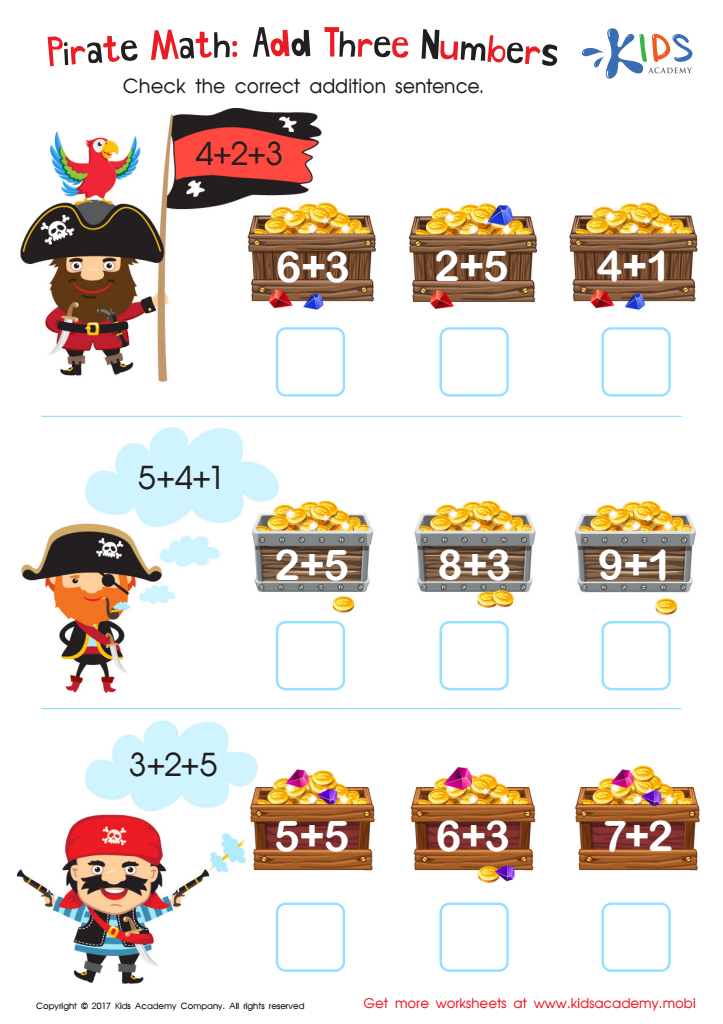

Pirate Math Printable
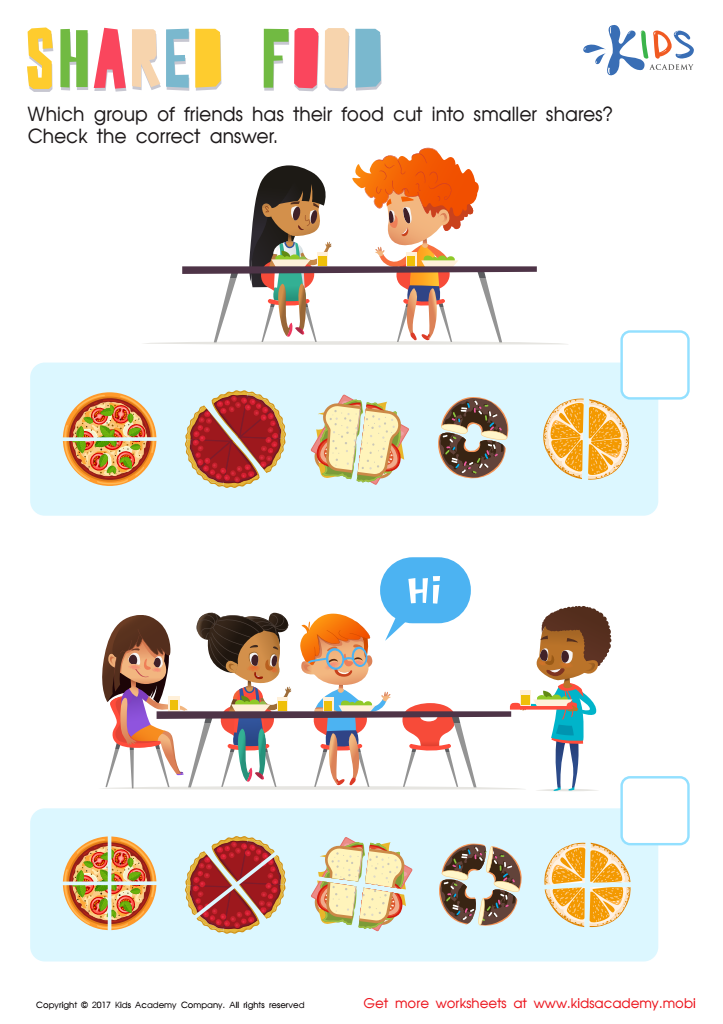

Shared Food Worksheet
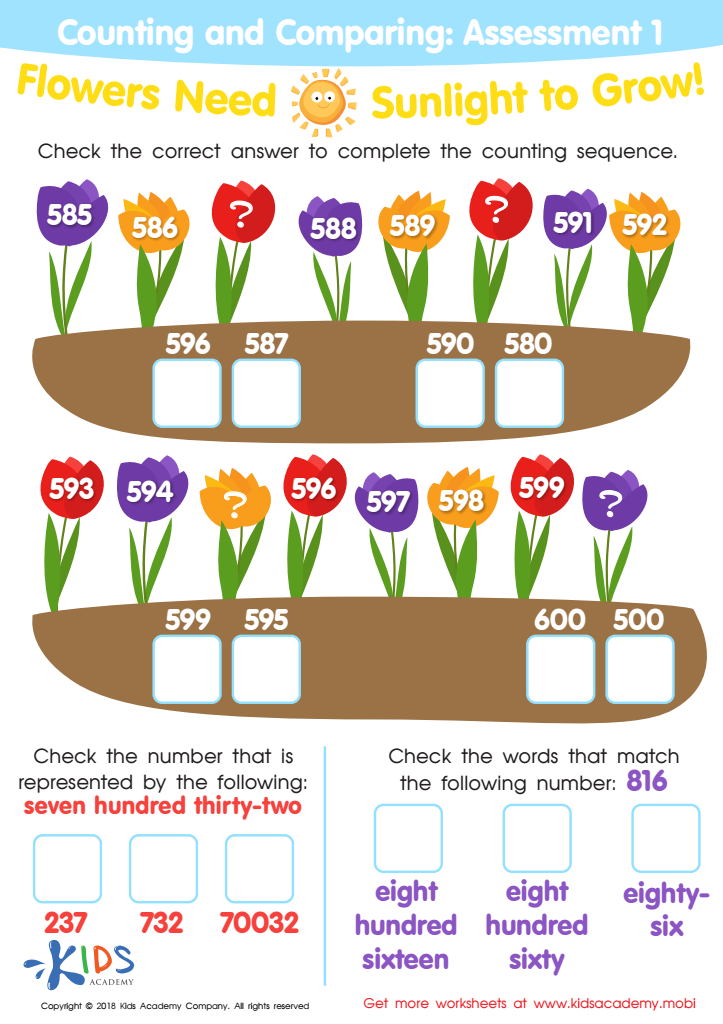

Counting and Comparing: Assessment 1 Worksheet
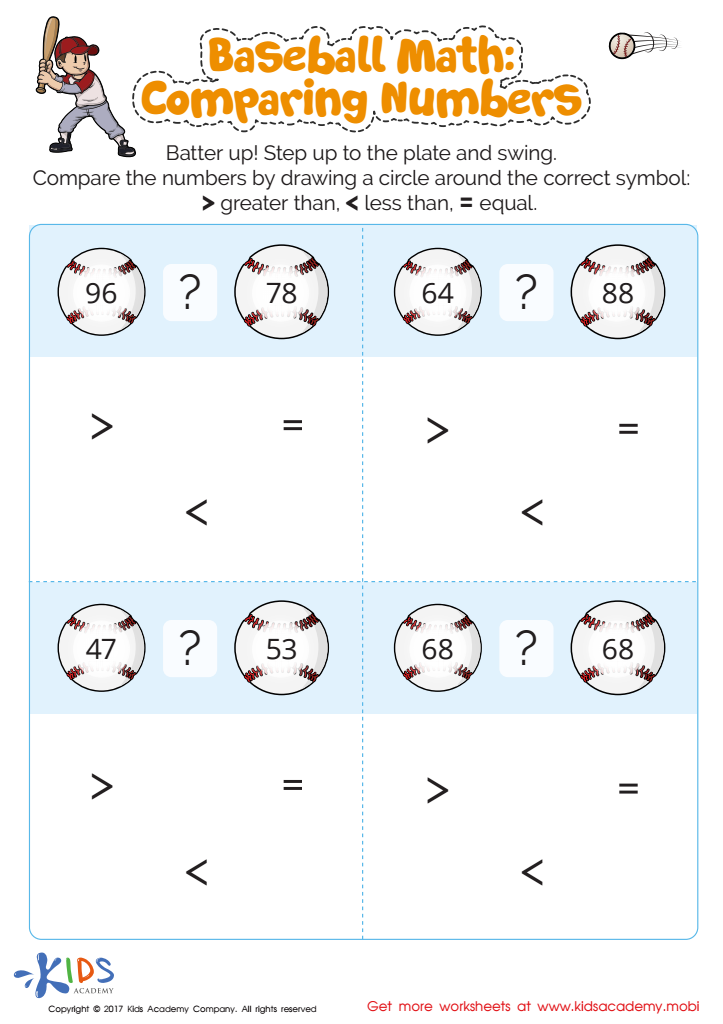

Compare Numbers Printable
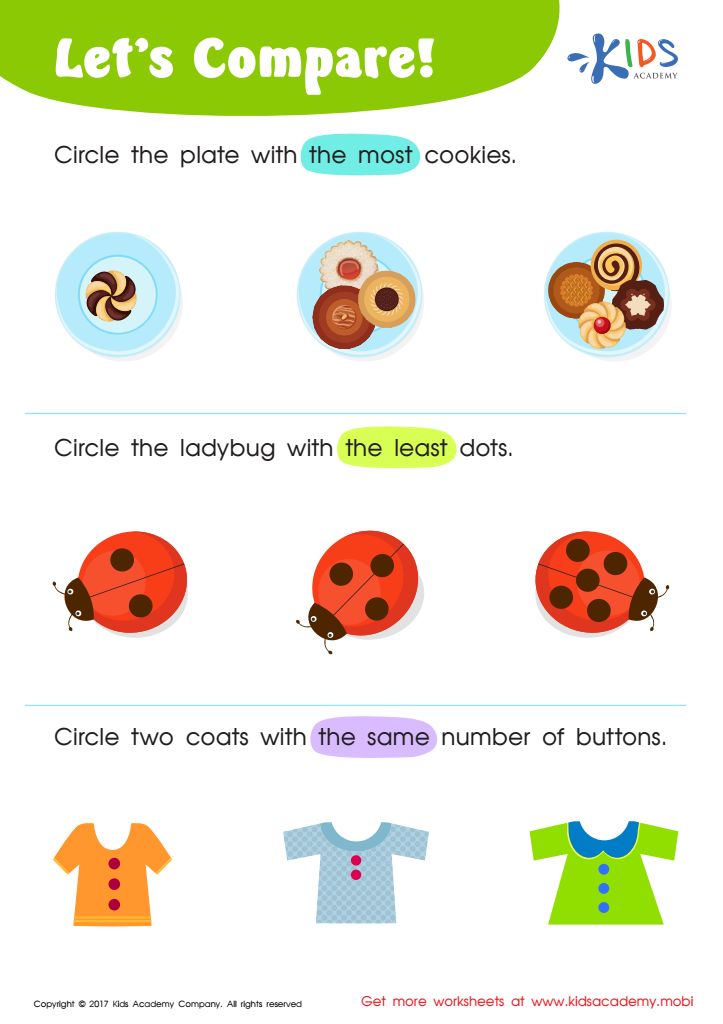

Matching: Classifying Toys by Size Worksheet
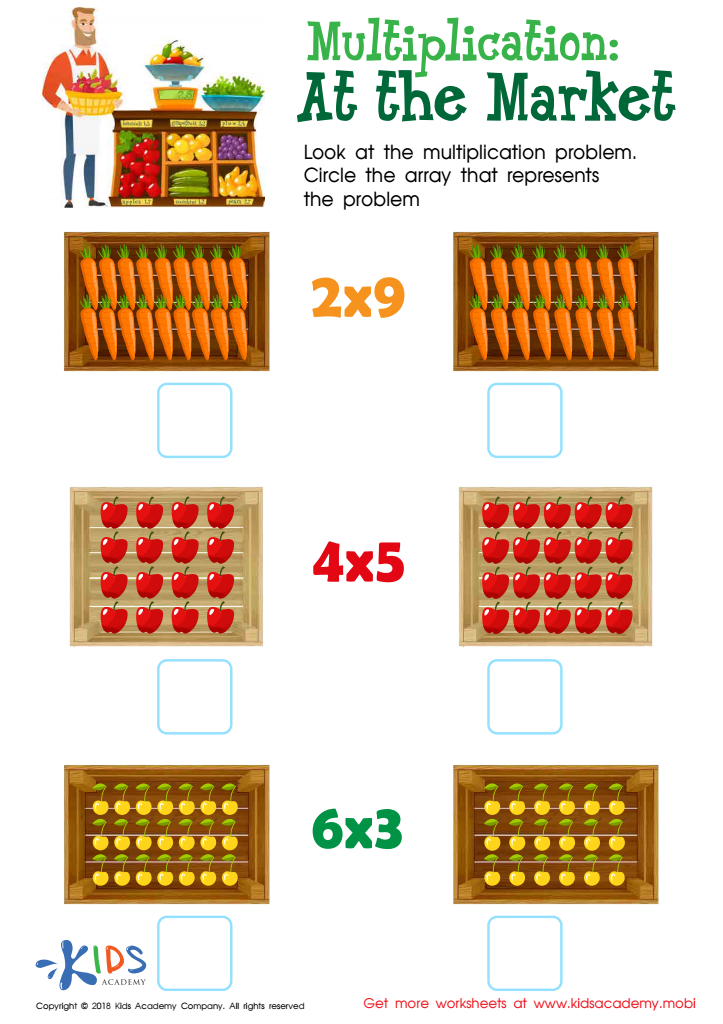

At the Market Worksheet
Problem-solving skills, particularly in comparing numbers, are crucial for children aged 6-9 as they lay the foundation for critical thinking and numeracy. During these formative years, children are developing essential cognitive abilities that will serve them throughout their academic journey and daily life. Understanding how to compare numbers—whether identifying which number is larger, recognizing patterns, or solving word problems—empowers children to navigate mathematical challenges with confidence.
For parents and teachers, nurturing these skills is vital because they foster independence and resilience. Children learn to approach problems methodically, enhancing their ability to work through challenges in various subjects. As they grasp concepts related to comparing numbers, they become equipped to tackle more complex mathematical operations in the future, such as addition, subtraction, and even fractions.
Additionally, these skills promote logical reasoning and decision-making, habits invaluable beyond the classroom. By encouraging children to engage in number comparisons through games, discussions, and practical activities, caregivers actively support their mathematical development and overall cognitive growth. This investment in problem-solving skills fosters a lifelong love of learning, ensuring that children are not only prepared for advanced mathematics but also equipped to tackle life’s multifaceted challenges. Thus, fostering problem-solving skills in this age group is essential for holistic development.
 Assign to My Students
Assign to My Students
